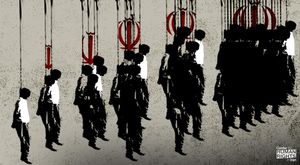On January 31, 2025, the German Bundestag faced significant political turmoil as the proposed "Zustrombegrenzungsgesetz" (Law to Limit Migration) was overwhelmingly rejected. The bill aimed to impose stricter controls on immigration and was introduced by the Union party coalition, primarily comprising the Christian Democratic Union (CDU) and the Christian Social Union (CSU). This legislation intended to respond to mounting concerns about migration, yet it failed to secure the necessary parliamentary backing.
The vote revealed deep fractures within the ruling coalition, highlighting the inability of party leaders to maintain cohesion on pivotal issues. According to reports, 349 out of 733 members of parliament voted against the legislation, with only 338 votes supporting it. The rejection was particularly pronounced within the ranks of the CDU/CSU and the Free Democratic Party (FDP), who had expected to secure their legislative goals due to previous support from the far-right Alternative for Germany (AfD) party. This anticipated alliance did not materialize as expected during the final vote.
Interestingly, the division within the CDU/CSU was marked by significant dissent. Twelve members, mostly associated with the more moderate faction of the party, did not follow party lines. Notable abstentions included former Chancellery Minister Helge Braun and cultural affairs secretary Monika Grütters. The absence of these prominent figures raised eyebrows and cast doubt on the leadership of CDU chair Friedrich Merz, who had been a staunch proponent of the legislation.
FDP also experienced substantial dissent, with 23 of its members choosing not to participate—either through abstentions or outright absence—during this key vote. Among those absent were the parliamentary manager Johannes Vogel and former Justice Minister Marco Buschmann, who was reportedly unwell. This internal resistance highlighted significant disagreement within the FDP about the proposed migration reforms, leading to questions about their future direction.
Opposition parties showcased their unity, with members of the Social Democratic Party (SPD), Greens, and the Left party collaborating to defeat this initiative. SPD parliamentary leader Rolf Mützenich issued scathing critiques of the Union's tactics, alleging they employed coercive strategies to exert pressure on opposition members and characterized the entire voting process as chaotic. With the message clear, Mützenich noted, "We were open to discussions and solutions, but refuse to enact legislation dictated by fear and misinformation."
The vote has broader implications for Germany's political environment, especially concerning the rise of populism and anti-immigration sentiment. Post-vote, critics including Alice Weidel, the AfD's leader, cast doubt on Merz's capabilities as a potential chancellor, stating, "He cannot lead us if he cannot manage his own party." Merz expressed disappointment over the outcome, openly lamenting the lack of unity among his party members and pledging to readdress the issue shortly, possibly without relying on the AfD’s support.
This legislative defeat marks the second significant blow to the CDU/CSU's migration strategy within just weeks, following their prior passing of similar reforms with AfD backing. The internal disagreements within the parties raise questions about their strategic direction and political alignments, entering the contentious election season. Will these fractures maintain momentum, or can the CDU/CSU unite to reclaim their dominance on key issues such as migration control?
Political analysts are left speculating on the potential ramifications this situation poses for Merz and the broader Union party. Merz's insistence on the necessity of migration reform echoes broader societal concerns, yet the rejection indicates the electorate's wariness of extreme approaches to governance, particularly those compromising democratic norms. Critically, this episode serves as both reflection and predictor of future political adaptations and challenges facing Germany.
Adding to the drama, Mützenich warned, "The power dynamics shaping this vote are indicative of increasing polarization within German politics. It's alarming to see families torn apart by fear-mongering tactics attached to migration. Our focus should be on realistic and humane immigration reform and coexistence, not exclusion." Meanwhile, as the political theater of the Bundestag unfolded, opposition parties celebrated this pivotal victory, emboldening them to continue their campaign outcry against the Union's approaches.
Looking forward, the SPD and Greens are contemplating new initiatives aimed at fostering more inclusive migration policies, hoping to redefine the narrative surrounding this contentious issue and gain favor with the electorate. Meanwhile, the Bundestag's rejection of the migration bill reflects not just immediate political dynamics, but the time-honored debate over national identity, security, and humanitarian responsibility—central themes likely to feature heavily as Germany approaches its general elections.
With the specter of renewed talks looming, Friedrich Merz's leadership will undoubtedly be under the microscope. His capacity to navigate internal divisions and adapt to the shifting political currents will determine the CDU's fate as it endeavors to recapture the confidence of both its members and the electorate.



